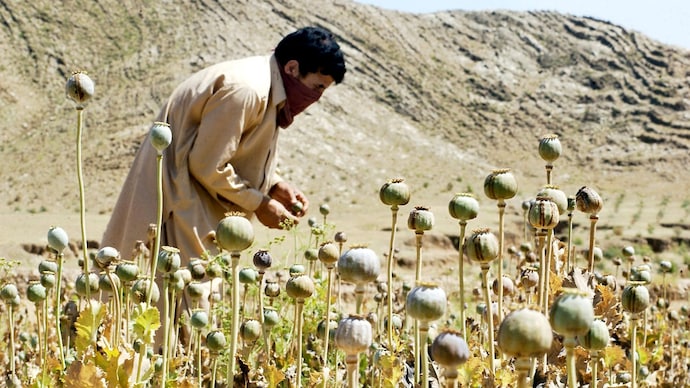
washington, D.C.: In a revelation that reads more like a spy thriller than reality, the Washington Post has reported that the U.S. Central Intelligence Agency (CIA) conducted a secret, decade-long operation to cripple Afghanistan’s multi-billion-dollar opium trade-not through airstrikes or raids, but by scattering genetically modified poppy seeds across the country.
Between 2004 and 2015, the CIA allegedly released billions of altered poppy seeds over Afghan farmlands, particularly in Helmand and Nangarhar provinces, two of the nation’s primary opium-producing regions. The mission’s goal was to subtly weaken the narcotic yield of the poppy plants, rendering heroin production unprofitable, the newspaper reported, citing 14 former U.S. officials familiar with the classified project.
“It was unconventional thinking – a nonmilitary solution to a deeply military problem,” one former U.S. official told the Post, referring to the CIA’s attempt to undercut the Taliban’s main source of funding through biotechnology rather than firepower.
The Secret “Seed Sabotage” Plan
At the height of the American war in Afghanistan, heroin trafficking had become a critical revenue stream for the Taliban and a driving force behind government corruption. By the mid-2000s, Afghanistan supplied around 90% of the world’s heroin, making the control of opium production a cornerstone of U.S. counterinsurgency efforts.
Beginning in late 2004, the CIA’s Crime and Narcotics Center oversaw the operation, using British C-130 aircraft to perform nighttime aerial drops of the modified seeds. These seeds were not genetically engineered but rather crossbred to produce plants with lower alkaloid levels-the chemical compounds that give opium its potency.
The expectation was that over several harvest cycles, the modified plants would cross-pollinate with native poppy varieties, gradually diluting Afghanistan’s overall opium strength and profitability. The mission’s secrecy was so high that even senior Pentagon and State Department officials were unaware of its existence, and Afghan President Hamid Karzai’s government was reportedly kept completely in the dark.
Billions Spent, Minimal Impact
While some insiders told the Post that the program showed “some success” during its early years, others described it as an expensive and ultimately futile effort. “The juice wasn’t worth the squeeze,” one official admitted, citing Afghanistan’s deeply entrenched opium Economy and the CIA’s ballooning operational costs.
By 2018, a report from the U.S. Special Inspector General for Afghanistan Reconstruction (SIGAR) concluded that no American counter-narcotics initiative had achieved sustainable reductions in poppy cultivation. The CIA’s seed sabotage, though innovative, appeared to have only temporary and localized effects.
“It was a clever idea,” another former intelligence officer said, “but in the end, Afghanistan grew back stronger-just like the poppy fields.”
Opium and the Afghan War Economy
Afghanistan’s opium trade has long been a pillar of the nation’s war economy, funding not only the Taliban but also warlords, corrupt officials, and criminal networks. Despite billions spent on eradication campaigns, alternative crop incentives, and foreign aid, poppy cultivation has repeatedly rebounded.
The CIA’s covert program represents one of the most unusual and least-known experiments in America’s 20-year war in Afghanistan-a biological approach to a geopolitical problem. While it briefly disrupted certain harvests, experts believe the operation ultimately underscored the limits of technology and secrecy in tackling systemic issues rooted in poverty, politics, and power.
Lessons from a Failed Experiment
The revelations about the modified poppy seed program come amid a broader reassessment of U.S. intervention strategies in Afghanistan. Former intelligence officials now view the effort as an ambitious but misguided attempt to weaponize agriculture in the fight against narcotics and terrorism.
As one retired CIA analyst summarized, “We tried to outsmart nature-and nature won.”
For breaking news and live news updates, like us on Facebook or follow us on Twitter and Instagram. Read more on Latest World on thefoxdaily.com.






COMMENTS 0